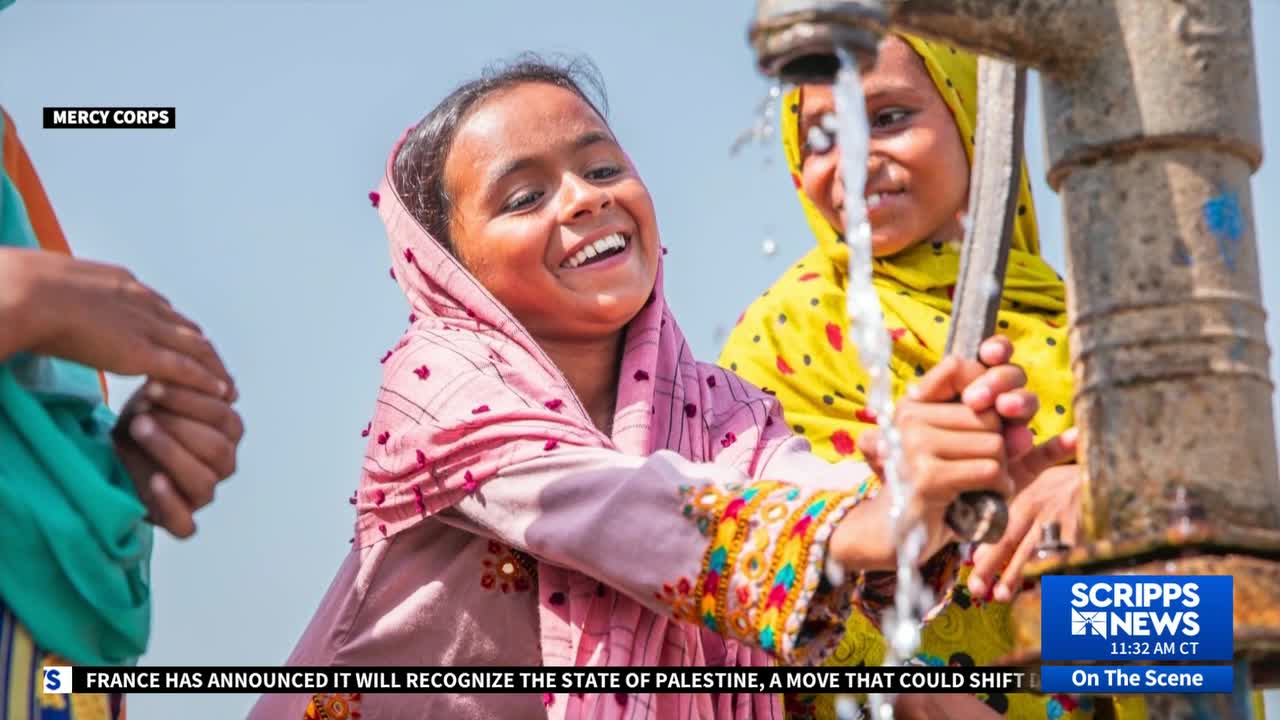Foreign aid funding was dealt another blow as President Donald Trump signed a bill Thursday rescinding billions of dollars for international aid programs.
This latest funding hit came after more than 80 percent of USAID programs were completely scrapped earlier this year, and international aid groups are fighting to fill in the gaps.
"The US has been such a generous donor and has been so effective at providing assistance that there is no direct substitute,” Katy Crosby, senior director of policy and advocacy at Mercy Corps, told Scripps News. “There's no single actor or program or person who can fill that gap.”
Crosby said 80% of the Mercy Corps’ U.S.-funded programs have been canceled under the Trump administration. Those programs would have provided emergency food assistance, clean drinking water, and access to shelter for more than 3.6 million people in countries like Nigeria, Iraq, Sudan and Gaza this year alone.
“And that for us meant that all of our work had to stop – not just rhetorically, but literally we had to put down our tools in some cases,” Crosby said.
In other cases, Mercy Corps was forced to close its doors to critical programs like nutrition centers, which provided food to 55,000 children.
A Mercy Corps humanitarian aid recipient in Colombia called the funding cuts a “slow death.”
Nor jean Luwi Maduro de Chiguita, a mother of two, who fled her home country of Venezuela for Colombia last year due to safety threats and the country’s economic crisis, told Scripps News she knows firsthand the value of humanitarian aid. When she and her family found themselves in a new country and in need of food and economic support, they, like millions of people across the world, received life-saving aid funded by the federal government.
USAID funding has played a crucial role in reducing preventable deaths among both children and adults across low and middle-income countries. According to a recent study, these cuts could result in 14 million avoidable deaths by 2030.
“I couldn't ever imagine this because soft power has been an integral part of what the US projects its image abroad and how it helps people,” Dr. Diana Putman, an international affairs expert and USAID’s former assistant administrator for Africa, told Scripps News.
Putnam spent about 40 years at USAID, seeing firsthand the irreplaceable role U.S. foreign assistance has played beyond and within U.S. borders.
“It's a very important part of our national security strategy because it is helping develop the economies overseas, which in turn reduces things like migration and drug trafficking, and trafficking in wildlife and people,” Putnam said. “So, it was unimaginable that we would throw away one leg of what we call the three-legged stool of defense, diplomacy, and development.”
Foreign aid cuts have come after years of claims by conservatives about the agency wasting billions in taxpayer money.
“They do not realize what a strong auditing system exists, put in place both by Congress and by USAID itself,” she said.
“US foreign assistance is less than 1% of the U.S. budget,” Crosby said. “This is a drop in the bucket.” In a July memo, Secretary of State Marco Rubio accused USAID of “creating a globe-spanning NGO industrial complex at taxpayer expense” with “little to show since the end of the Cold War."
As of July 1, USAID officially ceased to implement foreign assistance, which now falls under the State Department.
Going forward, U.S. foreign assistance will focus on programs that advance “an America first foreign policy,” the top U.S. diplomat said in the memo.
The new priorities will usher in a “new era of global partnership, peace, investment, and prosperity,” the memo said.
Putnam hopes that the new era will restore lifesaving aid.
“It may be later in this administration. Maybe the next administration or two. We'll bring back some form of soft power. We will bring back an organization like USAID because the need for it is too great across the globe,” she said.





